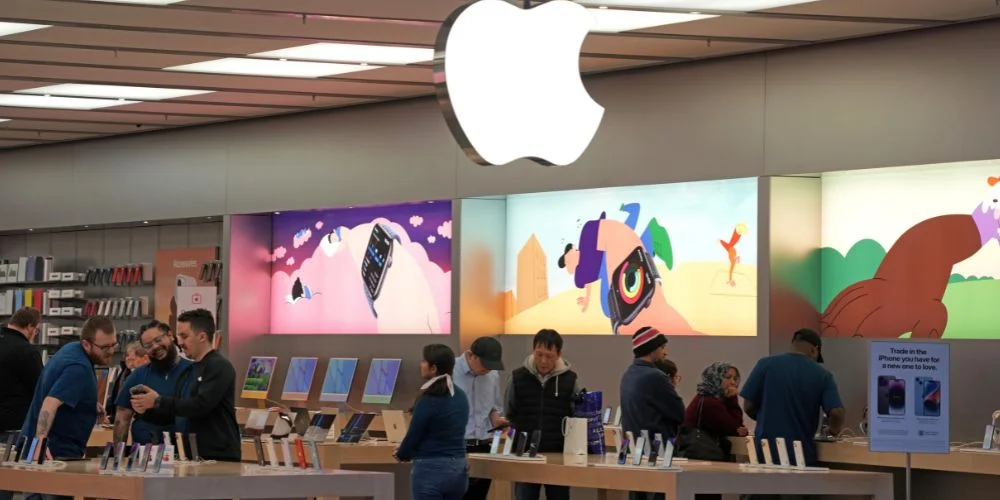Key Points
- Third-quarter iPhone sales were better than expected, falling just 0.9% versus the anticipated 2.2% drop.
- Apple forecasts revenue growth in the fiscal fourth quarter similar to the 4.9% increase in April-June.
- Apple is set to launch a major software upgrade for iPhones this fall, incorporating AI features.
- Sales in China, Apple’s third-largest market, declined by 6.5%, which is wider than the expected drop of 2.4%.
Apple Inc. (AAPL.O) reported better-than-expected third-quarter iPhone sales and forecasted additional gains, leveraging artificial intelligence (AI) to attract more buyers. This positive outlook comes despite a disappointing overall performance in China. Apple’s shares rose nearly 1% in extended trading, outpacing other tech stocks that were broadly lower.
In the upcoming fall, Apple is set to launch what analysts describe as the most significant software upgrade for the iPhone, incorporating AI features. This upgrade is anticipated to bolster Apple’s competitive stance, particularly as rivals like Samsung have been quicker to introduce similar services.
Apple projected that its revenue in the fiscal fourth quarter would grow at a rate comparable to the 4.9% increase seen in the April-June period, surpassing analysts’ expectations. iPhone sales in the third quarter showed improvement, falling only 0.9% against the expected 2.2% decline.
Chief Financial Officer Luca Maestri noted that the iPhone results exceeded his expectations from three months ago. “The iPhone 15 family has been doing well from the very beginning and still now – we have three quarters of the year behind us. It is performing better than the previous cycle, the iPhone 14,” Maestri told Reuters.
Despite these gains, Apple’s performance in China, its third-largest market, remained challenging, with sales declining 6.5%. Although this improved from the 8.1% drop in the previous quarter, it was more significant than the anticipated 2.4% decline, according to Visible Alpha. Maestri pointed out that China’s sales fell less than 3% when excluding foreign exchange effects and expressed confidence in Apple’s performance in the country despite its economic softness.
Apple has resorted to discounting its iPhones in China to compete with cheaper local alternatives. In May, the company offered discounts of up to 2,300 yuan ($317) on selected models to compete with local competitors like Huawei.




